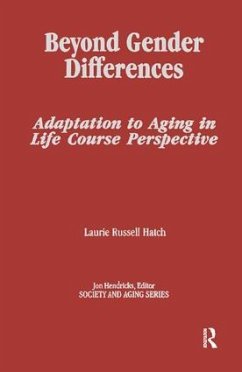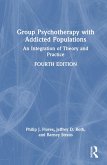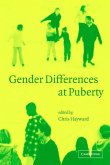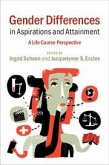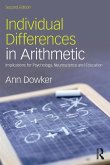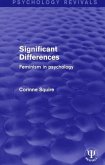- Broschiertes Buch
- Merkliste
- Auf die Merkliste
- Bewerten Bewerten
- Teilen
- Produkt teilen
- Produkterinnerung
- Produkterinnerung
Putting gender in a lifespan context, Hatch (sociology, U. of Kentucky) atypically accents the gains as well as losses of aging and sex differences in adaptation overall, to the death of a spouse, and to retirement. From the multifactored theoretical perspectives of symbolic interactionism and polit
Andere Kunden interessierten sich auch für
![Key Thinkers in Individual Differences Key Thinkers in Individual Differences]() Alex ForsytheKey Thinkers in Individual Differences149,99 €
Alex ForsytheKey Thinkers in Individual Differences149,99 €![Group Psychotherapy with Addicted Populations Group Psychotherapy with Addicted Populations]() Philip J. FloresGroup Psychotherapy with Addicted Populations148,99 €
Philip J. FloresGroup Psychotherapy with Addicted Populations148,99 €![Gender Differences at Puberty Gender Differences at Puberty]() Chris Hayward (ed.)Gender Differences at Puberty47,99 €
Chris Hayward (ed.)Gender Differences at Puberty47,99 €![Gender Differences in Aspirations and Attainment Gender Differences in Aspirations and Attainment]() Gender Differences in Aspirations and Attainment106,99 €
Gender Differences in Aspirations and Attainment106,99 €![Significant Differences Significant Differences]() Corinne SquireSignificant Differences94,99 €
Corinne SquireSignificant Differences94,99 €![Individual Differences in Arithmetic Individual Differences in Arithmetic]() Ann DowkerIndividual Differences in Arithmetic56,99 €
Ann DowkerIndividual Differences in Arithmetic56,99 €![Significant Differences Significant Differences]() Corinne SquireSignificant Differences35,99 €
Corinne SquireSignificant Differences35,99 €-
-
-
Putting gender in a lifespan context, Hatch (sociology, U. of Kentucky) atypically accents the gains as well as losses of aging and sex differences in adaptation overall, to the death of a spouse, and to retirement. From the multifactored theoretical perspectives of symbolic interactionism and polit
Produktdetails
- Produktdetails
- Verlag: Routledge
- Seitenzahl: 280
- Erscheinungstermin: 30. Januar 2019
- Englisch
- Abmessung: 229mm x 152mm x 15mm
- Gewicht: 410g
- ISBN-13: 9780415783958
- ISBN-10: 041578395X
- Artikelnr.: 55156728
- Herstellerkennzeichnung
- Libri GmbH
- Europaallee 1
- 36244 Bad Hersfeld
- gpsr@libri.de
- Verlag: Routledge
- Seitenzahl: 280
- Erscheinungstermin: 30. Januar 2019
- Englisch
- Abmessung: 229mm x 152mm x 15mm
- Gewicht: 410g
- ISBN-13: 9780415783958
- ISBN-10: 041578395X
- Artikelnr.: 55156728
- Herstellerkennzeichnung
- Libri GmbH
- Europaallee 1
- 36244 Bad Hersfeld
- gpsr@libri.de
Dr. Laurie Russell Hatch engages in the scholarship of teaching and learning and is a Professor of Sociology at the College of Arts and Sciences, University of Ohio.
CHAPTER 1-Introduction
The rationale for the book is presented. The aging experience often has
been framed by scholars as well as the general public in terms of gender
differences, but the nature and direction of such differences are
controversial.
CHAPTER 2-Putting Gender in Life Course Context
The two theoretical approaches to gender differences that have been used
most widely in social gerontology are reviewed and a life-course
perspective is advanced as an alternative framework.
CHAPTER 3-Adaptation to Aging
CHAPTER 4-Adaptation to the Death of a Spouse
CHAPTER 5-Adaptation to Retirement
The substantive chapters of the book examine adaptation to aging as a broad
and cumulative process (Chapter 3) and two life events that have been
thought to pose the greatest challenges to adaptation in older age: the
death of a spouse (Chapter 4) and retirement (Chapter 5). Each of these
three chapters is designed to address these questions: How have theories of
gender difference been used to explain adaptation in this realm of
experience? To what degree have gender differences been documented in the
relevant empirical literature, and are the reported findings supportive of
gender difference theories? How and why does a life course perspective
provide a more satisfactory framework for understanding women's and men's
adaptation to aging, and their adaptation to later-life events in
particular?
CHAPTER 6-Conclusion
The theoretical underpinnings for the life course approach utilized in the
book are examined. Theoretical linkages that can be made with this approach
are suggested. The book concludes by considering how adaptation to aging
can be framed to focus more fully on life-long processes and challenges
rather than on particular life events which are assumed to be stressful.
References
Indexes
The rationale for the book is presented. The aging experience often has
been framed by scholars as well as the general public in terms of gender
differences, but the nature and direction of such differences are
controversial.
CHAPTER 2-Putting Gender in Life Course Context
The two theoretical approaches to gender differences that have been used
most widely in social gerontology are reviewed and a life-course
perspective is advanced as an alternative framework.
CHAPTER 3-Adaptation to Aging
CHAPTER 4-Adaptation to the Death of a Spouse
CHAPTER 5-Adaptation to Retirement
The substantive chapters of the book examine adaptation to aging as a broad
and cumulative process (Chapter 3) and two life events that have been
thought to pose the greatest challenges to adaptation in older age: the
death of a spouse (Chapter 4) and retirement (Chapter 5). Each of these
three chapters is designed to address these questions: How have theories of
gender difference been used to explain adaptation in this realm of
experience? To what degree have gender differences been documented in the
relevant empirical literature, and are the reported findings supportive of
gender difference theories? How and why does a life course perspective
provide a more satisfactory framework for understanding women's and men's
adaptation to aging, and their adaptation to later-life events in
particular?
CHAPTER 6-Conclusion
The theoretical underpinnings for the life course approach utilized in the
book are examined. Theoretical linkages that can be made with this approach
are suggested. The book concludes by considering how adaptation to aging
can be framed to focus more fully on life-long processes and challenges
rather than on particular life events which are assumed to be stressful.
References
Indexes
CHAPTER 1-Introduction
The rationale for the book is presented. The aging experience often has
been framed by scholars as well as the general public in terms of gender
differences, but the nature and direction of such differences are
controversial.
CHAPTER 2-Putting Gender in Life Course Context
The two theoretical approaches to gender differences that have been used
most widely in social gerontology are reviewed and a life-course
perspective is advanced as an alternative framework.
CHAPTER 3-Adaptation to Aging
CHAPTER 4-Adaptation to the Death of a Spouse
CHAPTER 5-Adaptation to Retirement
The substantive chapters of the book examine adaptation to aging as a broad
and cumulative process (Chapter 3) and two life events that have been
thought to pose the greatest challenges to adaptation in older age: the
death of a spouse (Chapter 4) and retirement (Chapter 5). Each of these
three chapters is designed to address these questions: How have theories of
gender difference been used to explain adaptation in this realm of
experience? To what degree have gender differences been documented in the
relevant empirical literature, and are the reported findings supportive of
gender difference theories? How and why does a life course perspective
provide a more satisfactory framework for understanding women's and men's
adaptation to aging, and their adaptation to later-life events in
particular?
CHAPTER 6-Conclusion
The theoretical underpinnings for the life course approach utilized in the
book are examined. Theoretical linkages that can be made with this approach
are suggested. The book concludes by considering how adaptation to aging
can be framed to focus more fully on life-long processes and challenges
rather than on particular life events which are assumed to be stressful.
References
Indexes
The rationale for the book is presented. The aging experience often has
been framed by scholars as well as the general public in terms of gender
differences, but the nature and direction of such differences are
controversial.
CHAPTER 2-Putting Gender in Life Course Context
The two theoretical approaches to gender differences that have been used
most widely in social gerontology are reviewed and a life-course
perspective is advanced as an alternative framework.
CHAPTER 3-Adaptation to Aging
CHAPTER 4-Adaptation to the Death of a Spouse
CHAPTER 5-Adaptation to Retirement
The substantive chapters of the book examine adaptation to aging as a broad
and cumulative process (Chapter 3) and two life events that have been
thought to pose the greatest challenges to adaptation in older age: the
death of a spouse (Chapter 4) and retirement (Chapter 5). Each of these
three chapters is designed to address these questions: How have theories of
gender difference been used to explain adaptation in this realm of
experience? To what degree have gender differences been documented in the
relevant empirical literature, and are the reported findings supportive of
gender difference theories? How and why does a life course perspective
provide a more satisfactory framework for understanding women's and men's
adaptation to aging, and their adaptation to later-life events in
particular?
CHAPTER 6-Conclusion
The theoretical underpinnings for the life course approach utilized in the
book are examined. Theoretical linkages that can be made with this approach
are suggested. The book concludes by considering how adaptation to aging
can be framed to focus more fully on life-long processes and challenges
rather than on particular life events which are assumed to be stressful.
References
Indexes

